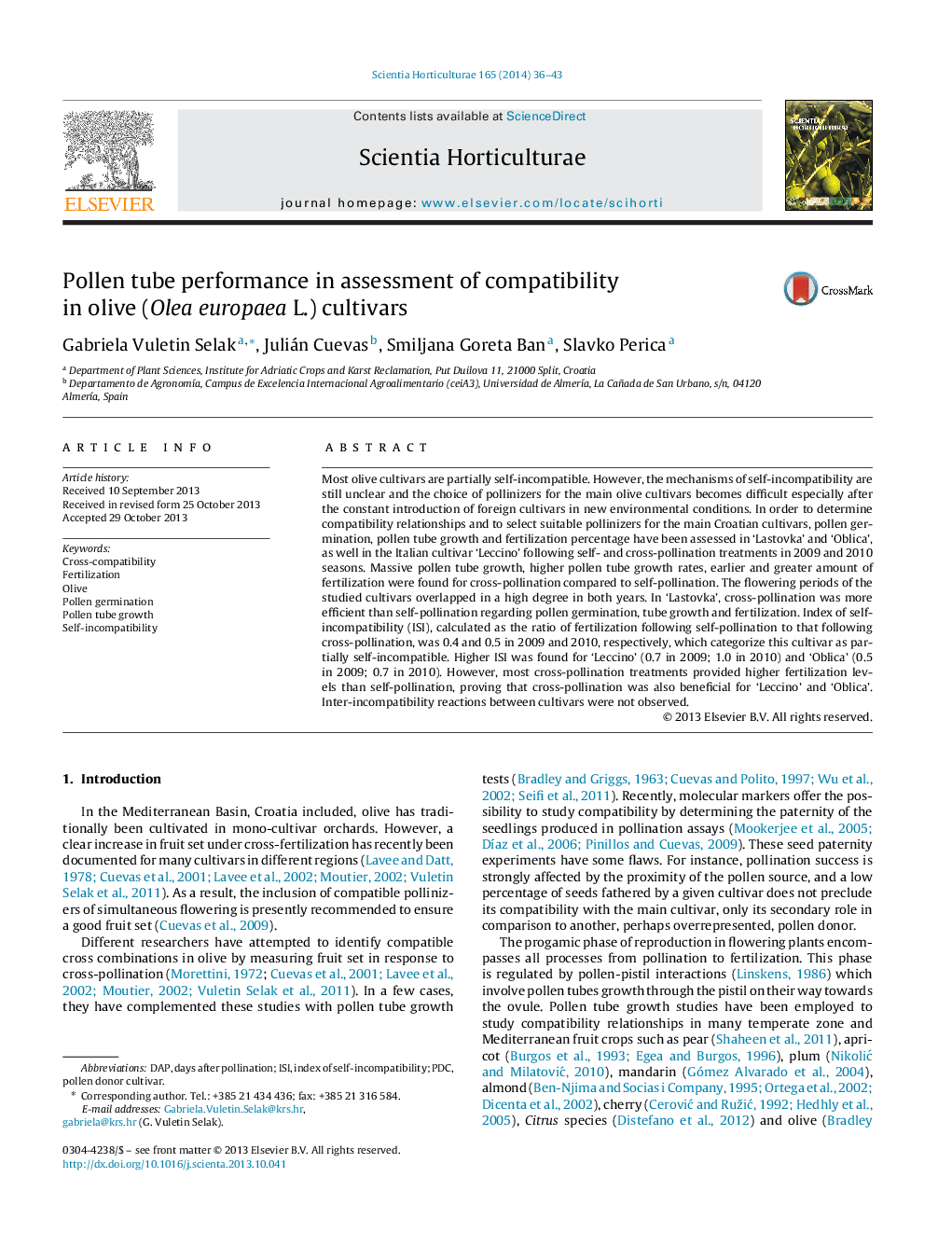| کد مقاله | کد نشریه | سال انتشار | مقاله انگلیسی | نسخه تمام متن |
|---|---|---|---|---|
| 6407374 | 1628833 | 2014 | 8 صفحه PDF | دانلود رایگان |

- Pollen-pistil interaction affects pollen performance in olive.
- Cross-pollination resulted with higher pollen tube growth rates than self-pollination.
- Earlier and greater amount of fertilization was found for cross-pollination than for self-pollination.
- Pollen-pistil interaction is early and reliable mode to estimate compatibility in olive.
Most olive cultivars are partially self-incompatible. However, the mechanisms of self-incompatibility are still unclear and the choice of pollinizers for the main olive cultivars becomes difficult especially after the constant introduction of foreign cultivars in new environmental conditions. In order to determine compatibility relationships and to select suitable pollinizers for the main Croatian cultivars, pollen germination, pollen tube growth and fertilization percentage have been assessed in 'Lastovka' and 'Oblica', as well in the Italian cultivar 'Leccino' following self- and cross-pollination treatments in 2009 and 2010 seasons. Massive pollen tube growth, higher pollen tube growth rates, earlier and greater amount of fertilization were found for cross-pollination compared to self-pollination. The flowering periods of the studied cultivars overlapped in a high degree in both years. In 'Lastovka', cross-pollination was more efficient than self-pollination regarding pollen germination, tube growth and fertilization. Index of self-incompatibility (ISI), calculated as the ratio of fertilization following self-pollination to that following cross-pollination, was 0.4 and 0.5 in 2009 and 2010, respectively, which categorize this cultivar as partially self-incompatible. Higher ISI was found for 'Leccino' (0.7 in 2009; 1.0 in 2010) and 'Oblica' (0.5 in 2009; 0.7 in 2010). However, most cross-pollination treatments provided higher fertilization levels than self-pollination, proving that cross-pollination was also beneficial for 'Leccino' and 'Oblica'. Inter-incompatibility reactions between cultivars were not observed.
Journal: Scientia Horticulturae - Volume 165, 22 January 2014, Pages 36-43